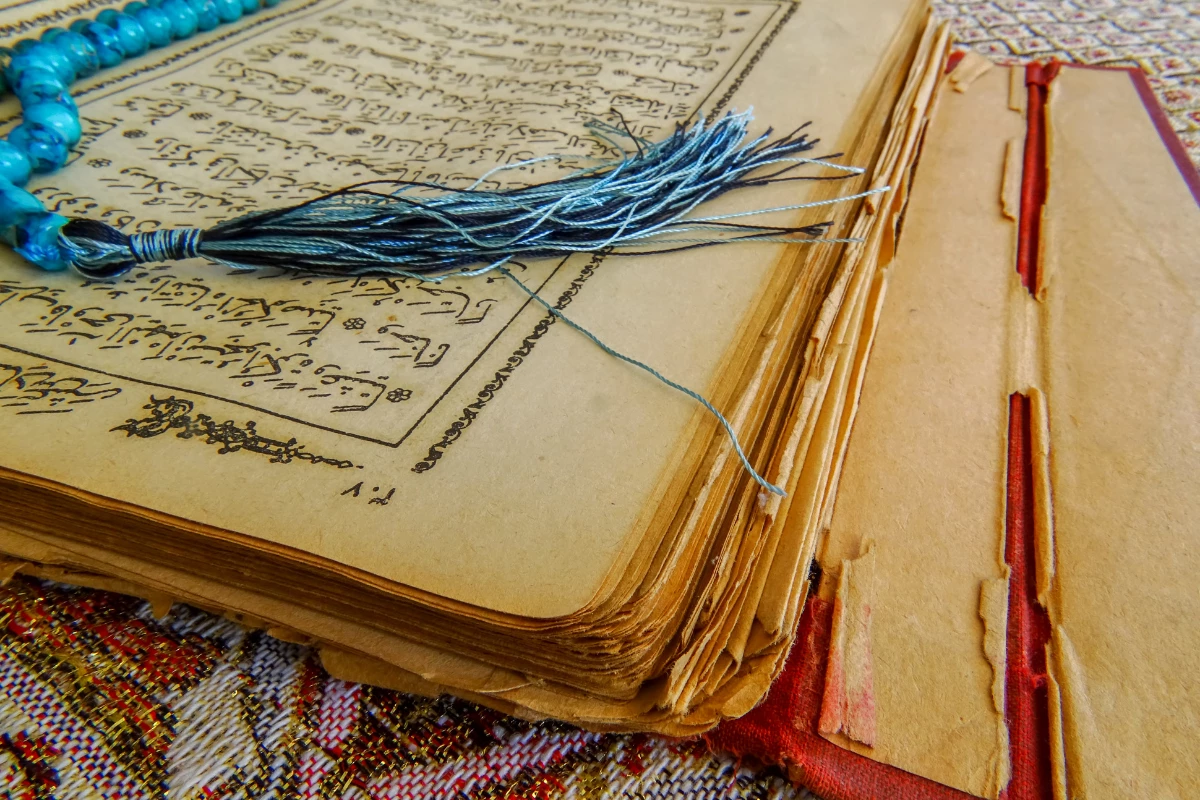In our swiftly evolving digital global, the manner we get entry to and examine spiritual texts is converting. The concept of an electronic Quran has revolutionized how Muslims around the globe have interaction with their holy ebook. This whole manual will discover the world of digital Qurans, their benefits, and how they will be shaping the future of Islamic training.
What is an Electronic Quran?
An electronic Quran, also appertained to as a digital Quran ore-Quran, refers to any virtual interpretation of the Islamic holye-book. This can take numerous forms:
- Quran apps for smartphones and tablets
- Digital Quran readers (dedicated devices)
- Online Quran websites and platforms
- E-books of the Quran
- Interactive Quran software for computers
These electronic versions often come with features that enhance the reading and learning experience, such as:
Recitation audio
Multiple translations
Tafsir (exegesis)
Search functions
Bookmarking and note-taking capabilities
The Evolution of Electronic Qurans
The journey of the Quran from parchment to pixels is a fascinating one:
- 1980s: The first electronic Qurans were simple text-based versions on early personal computers.
- 1990s: CD-ROMs with Quranic text and basic search functions became available.
- 2000s: The internet era brought online Quran resources and the first mobile phone Quran apps.
- 2010s: Smartphones revolutionized access to the Quran with feature-rich apps and high-quality audio.
- 2020s: AI and AR technologies are beginning to enhance Quranic learning experiences.
Benefits of Using an Electronic Quran

The shift towards digital Quranic resources offers numerous advantages:
Accessibility
Electronic Qurans make the holy text available whenever, everywhere. Whether you are commuting, travelling, or truely don’t have space for a physical Quran, a virtual model is continually at your fingertips.
Multifunctionality
Most electronic Qurans come packed with features:
- Multiple translations and interpretations
- Audio recitations by renowned Qaris
- Word-by-word translations and grammatical analysis
- Search functions for verses and topics
Learning Tools
Digital platforms often include learning aids such as:
- Tajweed rules highlighting
- Memorization techniques
- Quizzes and progress tracking
- Interactive lessons
Customization
Users can often customize their experience by:
- Adjusting font sizes and styles
- Choosing different recitation speeds
- Setting bookmarks and creating notes
- Selecting preferred translations or reciters
Environmental Friendliness
By reducing the need for printed materials, electronic Qurans contribute to environmental conservation.
Types of Electronic Quran Resources
Let’s explore the various forms of electronic Qurans in more detail:
Quran Apps
Smartphone apps are perhaps the most popular form of electronic Qurans today. Some notable examples include:
Quran Pro
Muslim Pro
iQuran
Quran Central
These apps often offer a range of features from basic text and translation to advanced study tools.
Online Quran Platforms
Websites dedicated to Quranic study provide comprehensive resources:
Quran.com
Tanzil.net
Quranexplorer.com
These platforms often offer multiple translations, tafsir, and sometimes even online classes.
E-book Qurans
Available in formats like PDF, EPUB, or MOBI,e-book Qurans can be read on colorful bias includinge-readers like Kindle.
Digital Quran compendiums
These are devoted bias designed specifically for reading and studying the Quran. They frequently come withpre-loaded content and technical features for Quranic study.
How Electronic Qurans are Changing Islamic Education
The arrival of electronic Qurans has significantly impacted Islamic education
Democratizing Access to Knowledge
Electronic coffers have made Quranic knowledge accessible to people anyhow of their position or access to traditional Islamic educational institutions.
Enhancing tone- Study
With features like word- by- word restatement and grammatical analysis, electronic Qurans empower individualities to claw deeper into the textbook on their own.
Supporting Different literacy Styles
Audio recitals feed to audile learners, while visual aids and interactive features support visual and kinesthetic learners.
Easing Global Connectivity
Online platforms allow scholars to connect with preceptors and fellow learners worldwide, fostering a global community of Quranic scholars.
Integrating Modern Educational styles
Electronic Qurans frequently incorporate ultramodern pedagogical ways like spaced reiteration for memorization and gamification for engagement.
Choosing the Right Electronic Quran
With so numerous options available, opting the right electronic Quran can be inviting. Then are some factors to consider
- Purpose Are you looking for introductory reading, in- depth study, or memorization aids?
- Device comity insure the resource works well on your favored device( smartphone, tablet, computer).
- Features Consider what tools are most important to you( restatements, audio, tafsir, etc.).
- stoner Interface Look for a clean, intuitive interface that is easy to navigate.
- Offline Capabilities If you need access without internet, insure the app or software has offline functionality.
- Authenticity corroborate that the Quranic textbook is accurate and from a estimable source.
Online Quran Classes The Coming Step in Electronic Quranic literacy

While electronic Qurans give excellent tone- study tools, numerous learners profit from structured guidance. This is where online Quran classes come by.
Benefits of Online Quran Classes
- individualized Attention One- on- one sessions with good preceptors.
- Flexible Scheduling Classes can be arranged to fit your schedule.
- Global Access Learn from expert preceptors anyhow of your position.
- Interactive Learning Real- time feedback and corrections enhance the literacy process.
- Progress Tracking numerous platforms offer methodical progress monitoring.
Types of Online Quran Classes
- Quran Reading For newcomers learning to read Arabic script.
- Tajweed fastening on correct pronunciation and enumeration rules.
- Hifz( Memorization) Structured programs for learning the Quran.
- Tafsir In- depth study of Quranic interpretation and meaning.
- Arabic Language Learning Arabic to more understand the Quran.
Choosing an Online Quran Learning Platform
When opting an online Quran literacy platform, consider
- schoolteacher Qualifications insure preceptors are certified and endured.
- Technology The platform should have dependable videotape conferencing and interactive tools.
- Class Look for a structured, comprehensive class.
- Inflexibility Check if the platform offers flexible scheduling options.
- Trial Classes numerous estimable platforms offer free trial classes.
The Future of Electronic Qurans
As technology continues to advance, we can anticipate indeed more innovative features in electronic Qurans
- Artificial Intelligence AI could give individualized literacy gests and answer complex questions about the Quran.
- Virtual Reality VR could offer immersive gests of literal Islamic spots or visualizations of Quranic stories.
- stoked Reality AR could enhance physical Qurans with digital overlays of restatements or tafsir.
- Natural Language Processing Improved voice recognition could allow for further sophisticated voice- controlled Quran apps.
- Blockchain This technology could be used to certify the authenticity of digital Quranic textbooks and restatements.
Balancing Tradition and Technology
While electronic Qurans offer multitudinous benefits, it’s important to maintain a balance with traditional styles of Quranic study
- Conserving the Oral Tradition Continue to emphasize memorization and enumeration.
- esteeming the Physical Quran Maintain proper form with physical clones of the Quran.
- mortal Connection Combine digital tools with particular instruction from knowledgeable preceptors.
- Critical Allowing Use technology as a tool to enhance understanding, not replace deep reflection.
Addressing enterprises About Electronic Qurans

Some Muslims have reservations about using electronic performances of the Quran. Let’s address some common enterprises
- Authenticity estimable electronic Qurans use authenticated textbooks and are regularly vindicated for delicacy.
- Ritual chastity utmost scholars agree that touching an electronic device displaying the Quran does n’t bear wudu( ablution).
- Distraction While bias can be abstracting, numerous electronic Qurans have distraction-free modes.
- Over-reliance on Technology It’s important to use electronic Qurans as a supplement to, not a relief for, traditional literacy styles.
Conclusion: Embracing the Digital Age of Quranic Study
The electronic Quran represents a important tool for making Islamic knowledge more accessible and engaging in the digital age. From smartphone apps to online classes, these coffers are opening new avenues for people around the world to connect with the Quran.
As we embrace these technological advancements, it’s pivotal to flash back that they’re tools to enhance our relationship with the Quran, not to replace the deep, particular connection that comes from regular enumeration, reflection, and operation of its training in our diurnal lives.
Whether you are a freshman just starting your Quranic trip or an advanced pupil looking to consolidate your understanding, electronic Quran coffers offer commodity for everyone. By combining the stylish of traditional Islamic literacy with the inventions of the digital age, we can foster a more knowledgeable, connected, and spiritually amended global Muslim community.
For further information on the impact of technology on religious education, you might find this composition from EdTech Magazine perceptive.
To explore the significance of balancing digital and traditional literacy in Islamic education, this piece from the Journal of Education and Learning offers precious perspectives.






What Is a Surah In The Quran » Online Quran Islam Acadmey Online Quran Classes
[…] Verses and Recitation […]